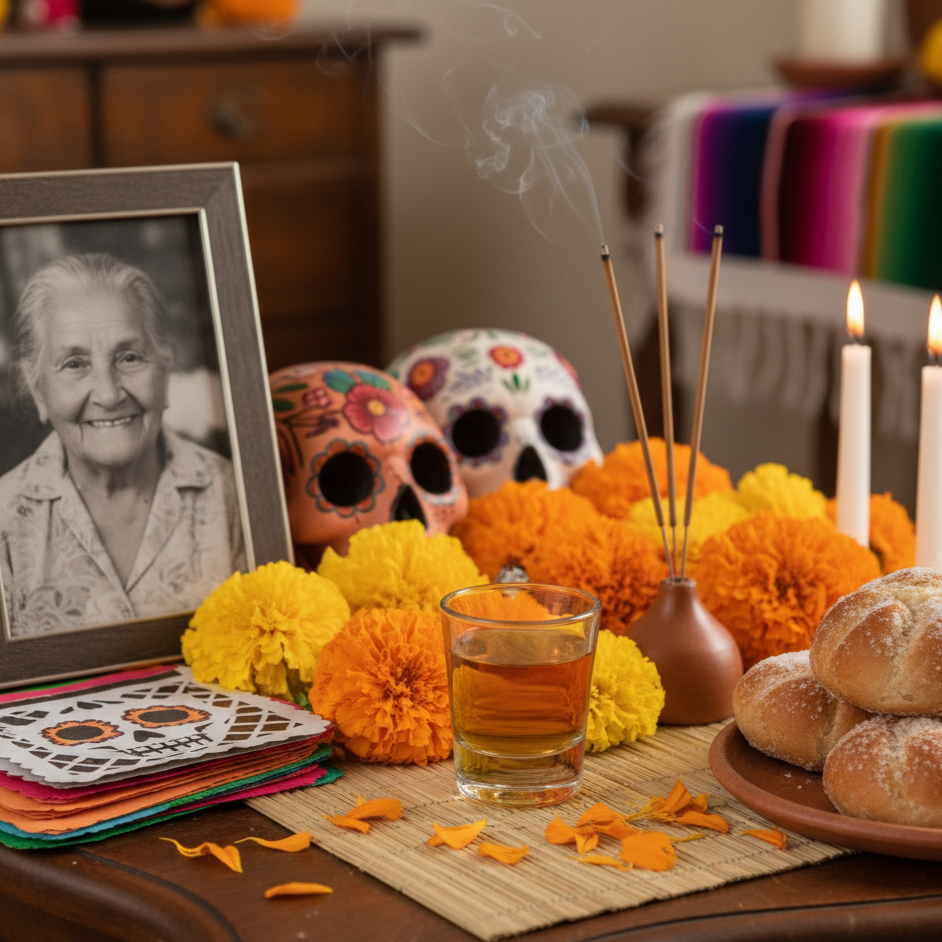An Offering of Life: Mezcal and the Sacred Traditions of Día de Los Muertos
Día de Los Muertos, or Day of the Dead, is a vibrant and deeply spiritual celebration observed across Mexico and by people of Mexican heritage worldwide. Far from a somber occasion, it is a joyous and colorful commemoration of life, a time when families gather to remember and honor their loved ones who have passed. Central to this tradition are the ofrendas, elaborately decorated altars built in homes, cemeteries, and public spaces, designed to welcome the spirits of the departed back to the world of the living for a fleeting, precious visit.
Every element on an ofrenda carries symbolic weight, creating a sensory pathway for the spirits. Marigolds (cempasúchil) with their bright hues and potent scent guide the way. Candles illuminate the path. Pan de muerto (bread of the dead), favorite foods, and photographs bring personal touches, inviting the spirits to partake in the earthly pleasures they once enjoyed. Among these offerings, a special place is often reserved for mezcal, a revered spirit deeply intertwined with Mexican culture and heritage.
Mezcal, derived from the agave plant, is more than just a drink; it's a living symbol of tradition, craft, and connection to the land. Its complex, smoky flavors evoke the earth and the hands that nurtured the agave. On an ofrenda, a copita (a small, traditional clay or glass cup) of mezcal is placed as a gesture of hospitality and remembrance. It's an offering of warmth and familiarity, a recognition of the joy and camaraderie the departed once shared with family and friends. For many, mezcal was a drink enjoyed in life, perhaps during celebrations, quiet evenings, or moments of reflection. Offering it now is a way to extend that shared experience across the veil, a comforting invitation for the spirits to feel at home once more.
The act of placing mezcal on an ofrenda embodies the belief that the spirits are not truly gone but are merely on a journey, and Día de Los Muertos is their homecoming. It acknowledges their presence and their enduring connection to the living. It’s a moment to raise a metaphorical toast to their memory, to celebrate the rich tapestry of their lives, and to express gratitude for the love and wisdom they imparted. This offering, steeped in respect and affection, reaffirms the cycle of life and death, reminding us that even in remembrance, there is profound vitality and a continuity of spirit. The smoky aroma and distinctive taste of mezcal become a bridge, a liquid embrace that connects past and present, ensuring the legacy and spirit of loved ones are cherished and never forgotten.

